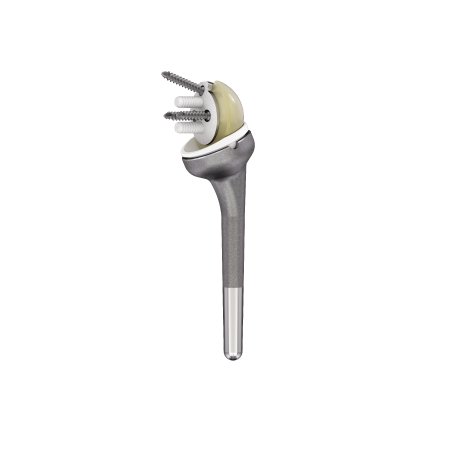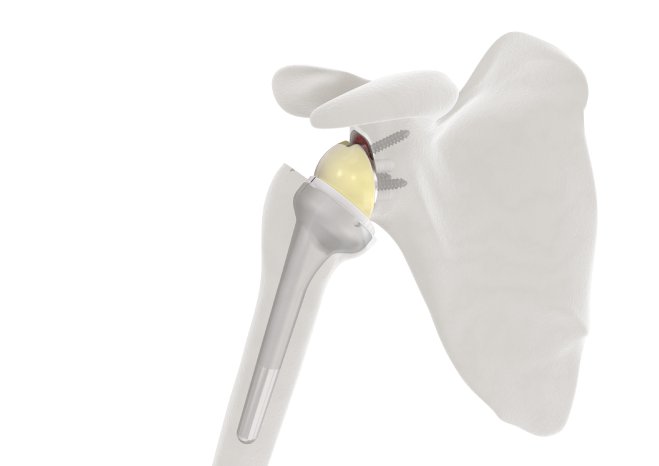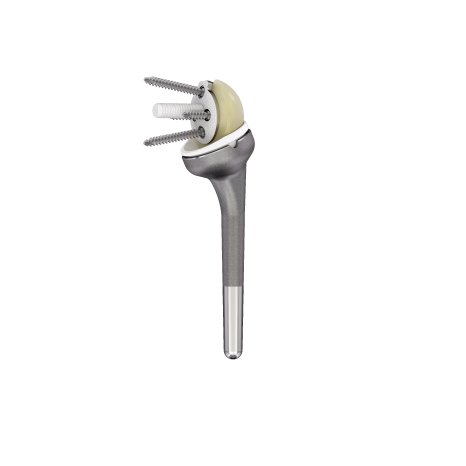With over ten years of clinical use in reversed shoulder prosthetics, the Affinis Inverse shoulder system has proven itself thanks to its long-lasting, stable glenoid component. With its two new metaglene variants, the medical technology company Mathys has now brought a targeted enhancement to its tried-and-tested system. The evolutionary concept adds to the benefits of the stable, compact metaglene-glenosphere connection with an optimised screw design featuring compression screws. In addition, these can be made axial-stable with the baseplate using locking caps.
Two metaglene options for different applications
As a standard solution for primary care, the shoulder system is available in the two-peg version Metaglene DP (Double Peg). In this metaglene variant, inlay screw notching is eliminated thanks to a two-peg design with no inferior screw. Moreover, the two A/P screws can be positioned more centrally and convergent, providing good anchoring in the bone substance. Once screwed in, the superior screw is locked to the baseplate with angular stability.
For more options in the treatment of larger defects, deformities or revision cases, Mathys offers the Metaglene CP (Central Peg) version, with one strong, central press-fit peg. The CP variant is based on the same screw design as the DP variant, and all screws are compression screws. Once screwed in, a locking cap also ensures final, axial-stable locking in both superior and inferior areas.
This evolutionary enhancement of the proven Affinis Inverse system from Mathys underscores its extensive expertise in the area of shoulder prosthetics. The Swiss medical technology company covers a wide range of indications with its shoulder portfolio and offers uncompromising quality of systematic solutions for orthopaedic challenges.
Further information on Affinis Inverse: www.affinis-inverse.com





